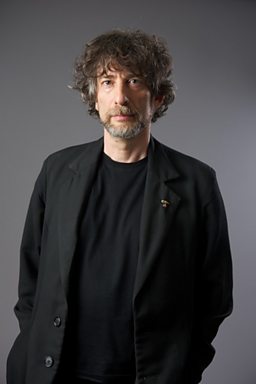Kontext und Deutung[Bearbeiten]
Der Panther gilt als das berühmteste
Dinggedicht Rilkes, in denen der Dichter zum Sprecher der „stummen Dinge“ wird. Der Panther wird in drei Strophen von seiner äußeren Erscheinung (Blick, Gang, Auge) beschrieben, um sein Inneres zu erschließen.
Der Entzug der Freiheit wird in der ersten Strophe durch den schleppenden Rhythmus ausgedrückt. Die zweite Strophe zeigt die innere Gefangenschaft des Panthers. Der Panther hat seine natürliche Wesensart verloren. Er ist
selbstentfremdet. Die dritte Strophe bestätigt die äußere und innere Gefangenschaft des Panthers.
Es gibt auch andere Interpretationen. Die zweite Strophe zeigt: Der Wille des Panthers ist betäubt, konnte jedoch nicht gebrochen werden. Das Bild der Gefangenschaft, die Umwelt hinter Stäben, lässt er nicht zu seinem tiefsten Inneren hinein, da es für ihn Qual bedeutet. Er lebt sein Leben der Gefangenschaft traumatisiert, mit unerkanntem individuellen Wesen. Der gefangene Panther ist weder „Ding“ noch „Stück“, sondern ein gequältes, leidendes Tier mit Selbstbewusstsein.
Ein motivgleiches Gedicht mit dem Titel
Tiger stammt von
Alfred Wolfenstein. Dort heißt es:
Die große Sonne scheint in seine Zelle
Und zieht auf seinem bunt gestreiften Felle
Noch andre Striche: schwarzer Stäbe Schatten.
In Rilkes Schrift über
Auguste Rodin heißt es: „Es giebt in Rodins Atelier den Abguß eines kaum handgroßen Panthers griechischer Arbeit (das Original befindet sich im Medaillen-Kabinett der Pariser National-Bibliothek); wenn man unter seinem Leibe durch von vorn in den Raum blickt, der von den vier geschmeidigstarken Tatzen gebildet wird, kann man glauben, in die Tiefe eines indischen Felsentempels zu sehen; so wächst dieses Werk und weitet sich zur Größe seiner Maße.“
[2]
Context and Commentary [edit]
The Panther is considered the most famous poem of Rilke thing, in which the poet spokesman of the "dumb things" is. The Panther is in three stanzas of his appearance (look, gait, eye) in order to open up its interior.
The deprivation of liberty is expressed in the first stanza by the sluggish rhythm. The second verse shows the inner captivity of the Panthers. The Panther has lost its natural character. He is selbstentfremdet. The third verse confirms the outer and inner captivity of the Panthers.
There are also other interpretations. The second verse shows: The will of the Panthers stunned, however, could not be broken. The image of captivity, the environment behind bars, he can not enter his heart of hearts, since it means torture for him. He lives his life imprisonment traumatized, with unrecognized individual beings. The captured panther is not a "thing" or "piece", but a tortured, suffering animal with confidence.
A motivational same poem titled Tiger comes from Alfred Wolfenstein. It says:
The large sun shines in his cell
And pulls on his brightly striped pelts
Still other lines: black bars shadow.
In Rilke's essay on Auguste Rodin says, "There are in Rodin's studio to cast a little hand big Panthers Greek work (the original is in the Medals Cabinet of the Paris National Library); when you walk through from the front looks under his body in the space, which is formed by the four geschmeidigstarken paws, can you believe, to see into the depths of an Indian rock temple; so grows this plant and expands to the size of its dimensions. "[2]
Wikipedia
The Panther (subtitled:
In Jardin des Plantes, Paris) is a poem by
Rainer Maria Rilke written on 6 November 1902.
[1] It describes a captured panther behind bars, as it was exhibited in the
Jardin des Plantes in Paris. It is one of Rilke's most famous poems and has been translated into English many times, including by many distinguished translators of Rilke, like Stephen Mitchell, C. F. MacIntyre, J. B. Leishman and Walter Arndt, and poets like Robert Bly
Content[edit]
The poem consists of three
stanzas (
strophes), each containing four verses with alternating feminine and masculine cadence:
German
Sein Blick ist vom Vorübergehn der Stäbe
so müd geworden, daß er nichts mehr hält.
Ihm ist, als ob es tausend Stäbe gäbe
und hinter tausend Stäben keine Welt.
Der weiche Gang geschmeidig starker Schritte,
der sich im allerkleinsten Kreise dreht,
ist wie ein Tanz von Kraft um eine Mitte,
in der betäubt ein großer Wille steht.
Nur manchmal schiebt der Vorhang der Pupille
sich lautlos auf –. Dann geht ein Bild hinein,
geht durch der Glieder angespannte Stille –
und hört im Herzen auf zu sein.
|
English
His gaze against the sweeping of the bars
has grown so weary, it can hold no more.
To him, there seem to be a thousand bars
and back behind those thousand bars no world.
The soft the supple step and sturdy pace,
that in the smallest of all circles turns,
moves like a dance of strength around a core
in which a mighty will is standing stunned.
Only at times the pupil’s curtain slides
up soundlessly — . An image enters then,
goes through the tensioned stillness of the limbs —
and in the heart ceases to be.
- English translation by Stanley Appelbaum
|
English
His vision, from the constantly passing bars,
has grown so weary that it cannot hold
anything else. It seems to him there are
a thousand bars; and behind the bars, no world.
As he paces in cramped circles, over and over,
the movement of his powerful soft strides
is like a ritual dance around a center
in which a mighty will stands paralyzed.
Only at times, the curtain of the pupils
lifts, quietly--. An image enters in,
rushes down through the tensed, arrested muscles,
plunges into the heart and is gone.
- English translation by Stephen Mitchell
|

